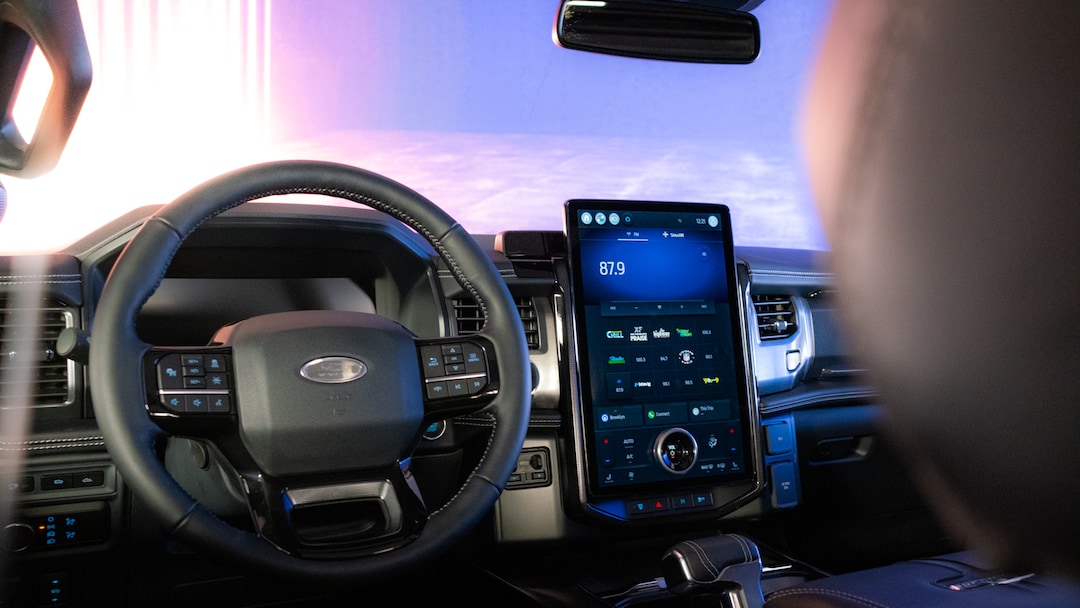We do our best to treat year-long test vehicles like we own them, sampling all the handy services like vehicle location and remote start and unlocking via smart-phone apps. With some, we even sample third-party connected-vehicle services. While not able to sample vehicle sharing, use-based insurance tracking, or road-use taxation (now coming online in Virginia and Utah), we have been enjoying the monthly Recurrent reports, which keep tabs on our year-long 2023 Ford F-150 Lightning all-electric pickup truck’s battery health. Thousands of EVs from across manufacturers are connected to Recurrent, which aggregates data about the effect of extremes of weather on battery range for different EVs providing a sort of “CarFax” for batteries, predicting the future health of this critical component.
Locked Out
Last fall, Recurrent emailed all Ford owners noting that Ford had begun treating Recurrent’s connection to Ford vehicles as a cyber intrusion, resetting passwords and effectively kicking owners off these platforms. Unfortunately, this blunt reaction interrupted access to Ford’s own apps, including remote unlocking and starting, which surprised some folks who had just secured their keys inside their vehicles, planning to unlock via the app.
Who’s To Blame?
When we reached out to Ford, we were informed that Recurrent and similar third-party service providers were obtaining unauthorized access to data. Ford advised that if these providers used Ford-authorized application programming interfaces (APIs) or software-development kits (SDKs), all would have been well. They also noted that true owners would have been required to agree to not provide username and password information to third parties like Smartcar when configuring Ford Pass. Ford has seen increased warranty calls for depleted 12-volt EV batteries due to apps “interrogating” its vehicles, leading to actions against data-hungry applications.
Smartcar Begs to Differ
Requesting third parties to go through channels is reasonable. Thus, we contacted Recurrent, who directed us to its connectivity vendor, Smartcar. This nine-year-old startup provides a single API that enables various applications like car sharing via Turo, vehicle position monitoring via Uber, battery monitoring via Recurrent, and data sharing via DIMO—a blockchain-based service aiming to help owners monetize their own data. Smartcar founder and CEO Sahas Katta explained their persistent efforts to engage with Ford over the years.
“We started the company in 2015, and since then we’ve put a lot of effort into knocking on the doors at Ford. I’ve come out to Dearborn multiple times a year for almost eight years now. Every single time they’ve responded with ‘thank you for your interest.’
Why the Stonewalling?
Katta speculated that there may be reluctance within Ford to allow owners access to data that could contradict marketing claims about battery performance. Furthermore, frequent changes in leadership have altered Ford’s data usage path. This issue is not unique to Ford; other manufacturers like Volkswagen group have similarly resisted sharing their software intellectual property with aftermarket service providers.
Ford’s stance is that it strives to ensure sufficient data-management infrastructure to maintain cybersecurity and prevent battery depletion issues while pointing to direct relationships with various insurance companies and European smart-charging startups like Octopus and Tibber. It seems Ford views Smartcar as a more challenging partner, given its role as an intermediary API for multiple applications.
Fundamental Misunderstanding
Katta expressed concern that a fundamental misunderstanding exists about how the tech industry generates revenue. Many believe companies like Facebook, Google, and Apple monetize customer data, leading to missed revenue opportunities in selling data. Smartcar does not retain any data, and client companies that aggregate data, like Recurrent, ensure it remains fully anonymized.
Therefore, manufacturers risk alienation by not embracing connected-vehicle service data, as marketing opportunities based on individual driver behavior are unlikely.
How Do OEM APIs/SDKs Help?
Aftermarket producers usually create parts by waiting for a new vehicle, measuring it, tooling up, and selling. This process could be streamlined if designed using original engineering drawings, as official OE aftermarket parts are. The same principle applies to software services. Companies that license APIs or SDKs are informed of changes through over-the-air updates to align product revisions.
We’ll Laugh About This Someday
We trust that progress will lean toward better products and services for all, and we will look back at this wild-west era of software-defined vehicles with bemusement.
Official Response
To better support our customers, Ford works with trusted partners to offer third-party products and services that use vehicle data—when it is at the customer’s direction and with their explicit consent—to help save time or money, add convenience, or enhance the ownership experience. A core part of this effort is to ensure that data access is done collaboratively to prevent vehicle safety, security, or quality issues. For example, we take steps to securely share data and prevent excessive requests from third parties that could drain the 12-volt battery.
Examples of collaboration include supporting usage-based insurance products that can offer premium discounts. We also recently announced a partnership with Octopus and Tibber in Europe to help Ford customers charge their EVs using specially designed energy tariffs.




